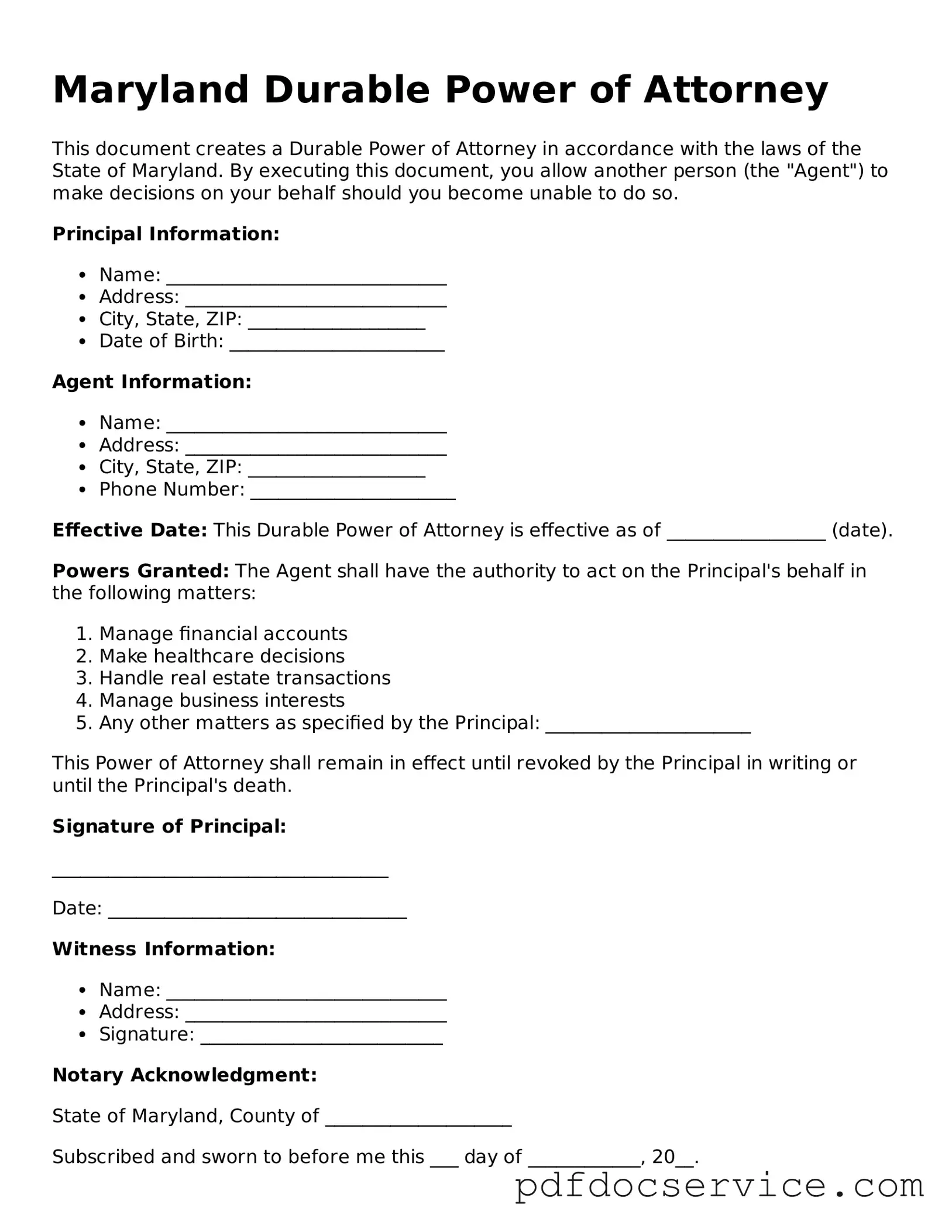Printable Durable Power of Attorney Template for Maryland
A Maryland Durable Power of Attorney form is a legal document that allows you to appoint someone to make decisions on your behalf if you become unable to do so. This form remains effective even if you become incapacitated, ensuring that your wishes are honored. Understanding how this document works can provide peace of mind for you and your loved ones.
Open Durable Power of Attorney Editor

Printable Durable Power of Attorney Template for Maryland
Open Durable Power of Attorney Editor

Open Durable Power of Attorney Editor
or
Get Durable Power of Attorney PDF
Finish the form now and be done
Finish Durable Power of Attorney online using simple edit, save, and download steps.